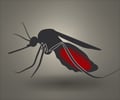What appears to be Aedes and behaves like Aedes but is not Aedes? Lessons from dengue control can be applied to managing Anopheles’ spread.
- Malaria has been spreading to countries where the disease is not endemic
- The technical challenges of controlling malaria and dengue are not very different from each other
- The learnings from dengue control programs should be applied for malaria control
The MENTOR Initiative’s report describes how A. stephensi has adapted to spawn in artificial water containers in heavily populated metropolitan areas, much like the Aedes mosquito. It might affect millions of individuals due to the significant consequences of increasing malaria morbidity and mortality.
2012 saw the first African discovery of A. stephensi, a species that is indigenous to rural and urban China, portions of Asia, and the middle east. Since it behaves similarly to the Aedes mosquito, which is to blame for the dengue virus’s ever-increasing morbidity load and presence in 129 countries, immediate action is required to stop its spread.
Patients living in urban areas are immunologically more sensitive to malaria than residents of rural communities. Urban dwellers are more likely to experience severe clinical symptoms and a proportionately higher risk of dying.
Rapid Spread of Malaria Mosquito
CEO of MENTOR and the study paper’s primary author, Richard Allan, said, “The aggressive spread of A. stephensi is due to increased population movement and rapid, unplanned urbanization that leads to poor water quality, sanitation, water container removal and hygiene systems.”Controlling the Spread of Malaria
He added, “But we can stop the spread of A. stephensi in African urban settings by using improved community-based vector control practices that also target Aedes, such as managing water storage and waste removal; alongside targeted larvicidal source management and the use of new tools like spatial repellents and mosquito-proofing of houses.”“We must escalate our response to stop the potentially rapid development of urban malaria transmission and the spread of dengue viruses and other Aedes-borne viruses. It is also important that the surveillance of A. stephensi is integrated into new and existing entomological surveillance programs in Europe.”
Challenges in Malaria Control
“The technical challenges of controlling A. stephensi and malaria in African urban settings are no more complex than those used to control diseases that Aedes mosquitoes spread. This presents a real opportunity for disease control and health agencies to work together with water and sanitation services and urban planners to effectively protect the millions of people at risk. The combined health effect of decisive, proactive, integrated control in urban settings across invasive disease vector species will achieve real impact for donor investment and renewed trust for the years ahead,” said Richard Allan.Source-Medindia















